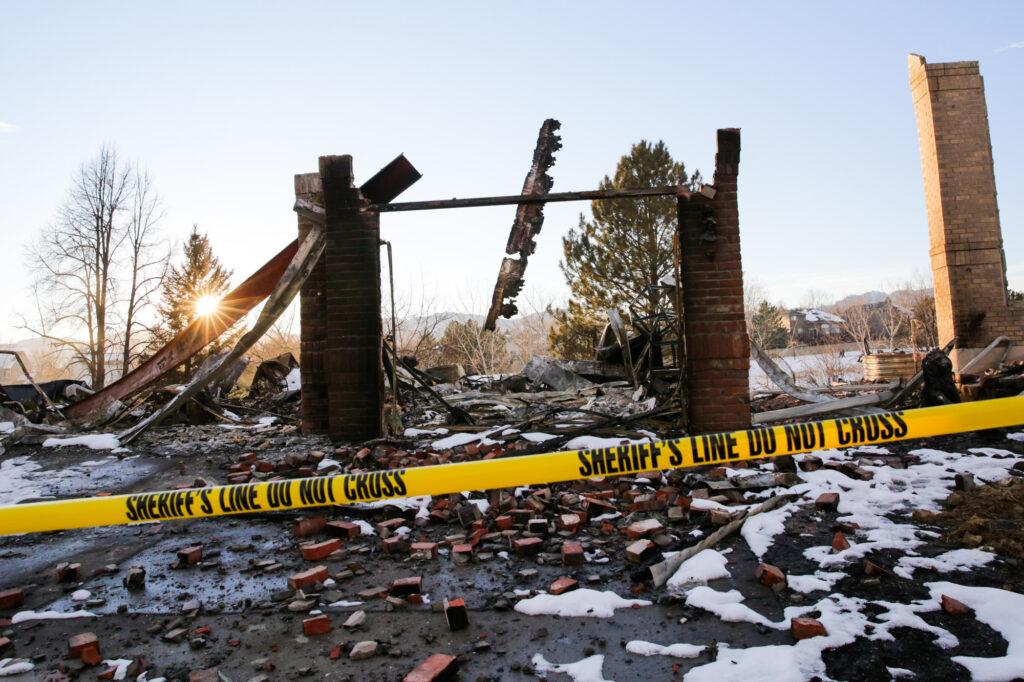
Attorneys hope to finalize settlement agreements by Nov. 5 with individual plaintiffs in the lawsuit against Xcel over its alleged role in the deadly 2021 Marshall Fire.
Several law firms representing thousands of survivors sued the utility giant, arguing its equipment sparked Colorado’s most destructive wildfire. A judge consolidated those cases into a massive lawsuit, which was set for jury selection on Thursday.
But on the eve of the trial, Xcel and two telecom companies, which are also defendants, announced they had agreed to pay around $640 million to settle those claims. As part of the deal, Xcel admits to no fault or wrongdoing.
The money will be divided among public entities like Boulder County, more than 100 insurance companies, and thousands of individuals.
Xcel did not detail how the money would actually be apportioned to those groups, and declined to comment further on the settlement terms.
The agreements are not yet final and must be signed by each individual plaintiff. Attorneys for Xcel and the plaintiffs will meet in Boulder County District Court on Nov. 5 to update a judge about the status of the settlements.
That “status conference” is not a deadline, but a meeting to keep the court informed about the settlement process, according to James Avery from Denver Injury Law, who is representing more than 200 clients.
“What we're working toward is having all the 4,000 individual plaintiffs sign an individual settlement agreement for their specific allocation, and have those all submitted to Xcel before the November 5th status conference,” Avery said.
Plaintiffs who do not want to sign agreements are not required to opt in to the deals.
Firm hopes clients see payments before end of the year, but settlement details are still murky
There are several steps individual plaintiffs will have to take before they can receive their money.
First, each must sign a personalized settlement agreement, which lists a payment amount tailored to their specific circumstances.
Those amounts will remain confidential as part of the deal, according to Paul Starita, an attorney at Singleton Schreiber, which is representing homeowners affected by the fire.

He said the confidentiality clause is not unusual in complex, “mass tort” cases involving thousands of plaintiffs.
Law firms will send those signed release forms back to Xcel, which will, in return, send back lump settlement funds. The firms will deduct their legal fees before issuing payments to individual clients.
“Our goal is to do everything we need to do to get our clients paid the settlement sum before the end of the year,” Starita said.
The settlement caps years of legal wrangling between Xcel and the plaintiffs. Had Xcel gone to trial and been found liable for its role in the fire, it could have faced damages far exceeding the proposed settlement.
But key details about how the settlement emerged remain murky. A court-ordered mediation process, with a facilitator agreed to by all sides, concluded in July with no agreement. Specifics about those discussions are confidential, according to Starita.
Even so, Avery said that settlement negotiations always pick up as a case nears its trial date.
“Things start getting serious at the time of the pre-trial conference,” he said.
In this case, the last pre-trial conference occurred on Sept. 10, according to a court calendar. Avery said his firm heard from Xcel around that time with a negotiated settlement offer.

But Avery said each law firm involved is in the dark about what the others have negotiated with Xcel. That means that different teams of lawyers may have negotiated vastly different payouts, depending on the number of clients they have and the specific circumstances in their cases.
“Nobody knows what anybody else is getting,” he said. “The only one that’s not in the dark is the mediator, and Xcel.”
Avery’s firm has hired a specialized mediator to figure out what each client he represents should receive out of the total the company collects. He said the mediator considers a range of factors, including economic losses, when recommending an amount for a client.









